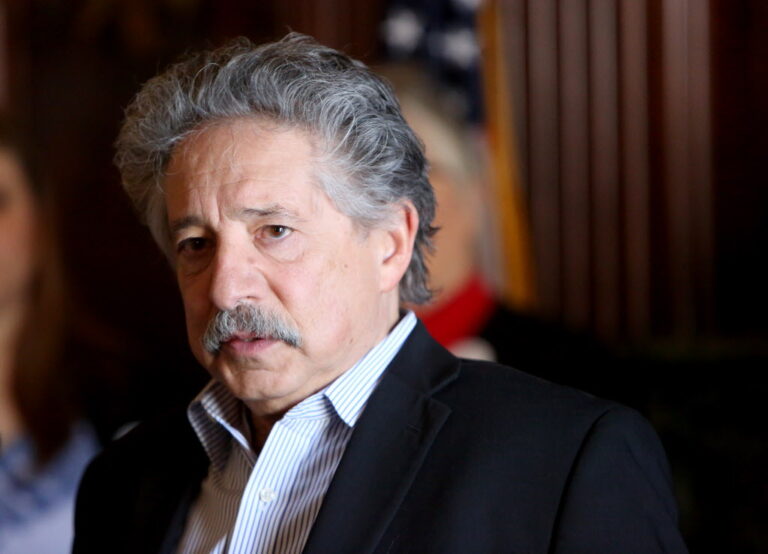
Christian Schneider: Madison curmudgeon, Mayor Paul Soglin, won’t beat Scott Walker in this century
Clearly, Soglin thinks he’s the right man for the right time. But given his record, it is unclear whether that time is 2018 or 1918.
Visit WisPolitics-State Affairs for premium content,
keyword notifications, bill tracking and more

Submit columns for consideration to wisopinion@wispolitics.com

Clearly, Soglin thinks he’s the right man for the right time. But given his record, it is unclear whether that time is 2018 or 1918.

What’s scary about all this blustering about nuclear war between North Korea and the United States is that it is accepted so cavalierly — like, ho-hum, lobbing nukes at each other across the Pacific is just another day at the office.
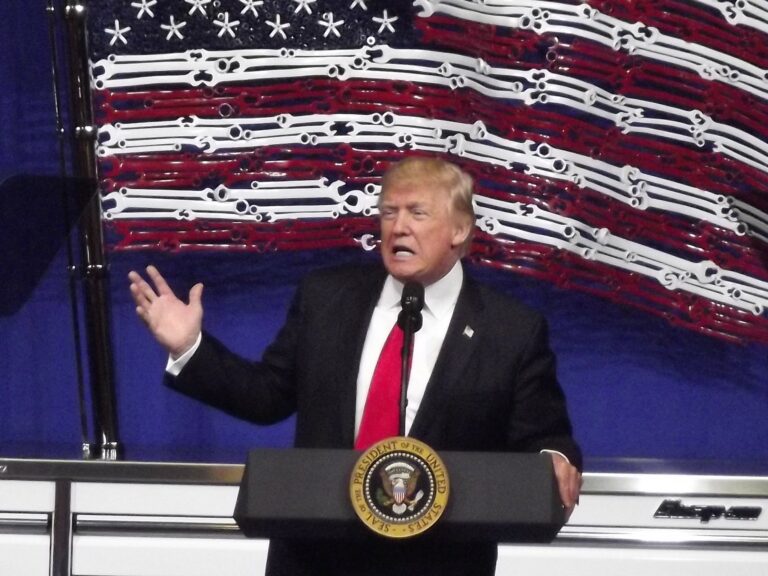
Trump administration has waged a ceaseless war on our outdoors, eviscerating our system of environmental protection, severely weakening safeguards for our air, land and water and undercutting efforts to address the climate crisis.

Pocan, Moore, Sensenbrenner, Duffy voted NO on FISA bill.
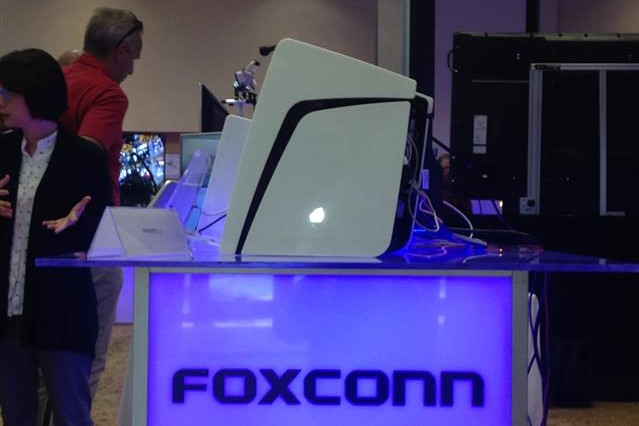
Glitzy, WI-paid Foxconn-related transit ads on Illinois transit, hundreds of millions of WI transportation dollars for Foxconn-related roads, but in Milwaukee County, buses to industrial parks and other routes have been slashed for lack of funds that wouldn’t even show up in the $4 billion ticketed for Foxconn.

Efficiency office created in 2010 reports to board members. But is it needed?
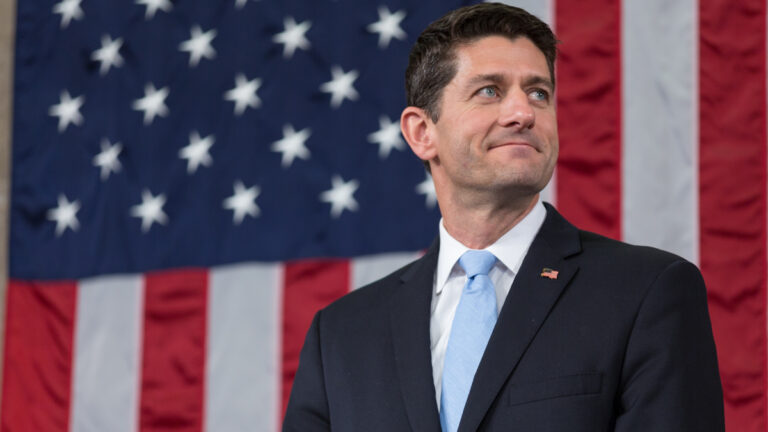
After almost a decade of stunted growth, depressed wages, and general pessimism, America’s economic confidence is growing. And soon worker’s paychecks will be, too.

And that’s a mark of how endangered voting rights are right now.

His call to fire elections commission leader defies the law and common sense.

This weekend on Capital City Sunday Wisconsin Senator Ron Johnson was allowed to make it appear that everyone hates the Affordable Care Act. The fact is that the law is now more popular than ever.

In “Two Minutes with Mitch” radio personality Mitch Henck gives his two cents on Gov. Scott Walker’s criticism of Madison Mayor and gubernatorial candidate Paul Soglin and the city of Madison.

Walker says he’s taking Wisconsin in the right direction, but if that leads to state waters, don’t smell, drink or fish it, his own data show.
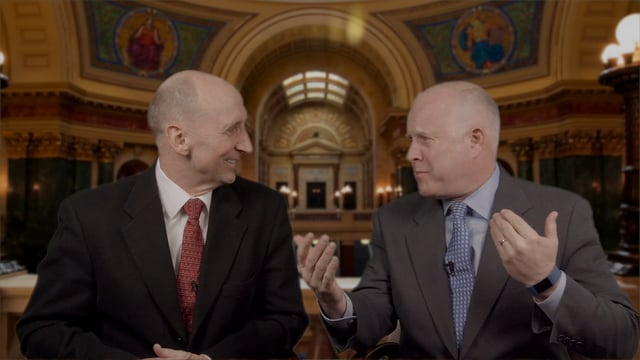
Show 39B Insiders Two-Minute Take (1-12-2018) from WisOpinion on Vimeo. The WisOpinion Insiders, Jensen & Chvala, analyze whether the latest Dem governor candidate, Paul Soglin, can become the Bernie Sanders of Wisconsin. Sponsored by Michael Best Strategies and the Wisconsin
Gov. Scott Walker recently announced a plan to close Lincoln Hills and Copper Lake and move offenders from the Northern Wisconsin youth prisons to new regional facilities.

Nationally respected pollster Paul Maslin says Democrats could do well in 2018 if they credibly offer an alternative to the status quo.

The next Democratic nominee for governor of Wisconsin should be the candidate who best expresses what the author Michael Harrington used to describe as “the left wing of the possible” — a progressive who can win. It is entirely true that the candidate who best strikes this balance could be over 70 or under 40. But it is also true that the Democratic Party needs an infusion of young blood among the ranks of its candidates.

The state of Florida has 20.6 million residents. Wisconsin has 5.8 million. Both states are about the same number of square miles. Florida has 67 school districts. Wisconsin has 425.

It’s bad enough that Wisconsin Republicans have gone out of their way to make it harder for many Wisconsin citizens to exercise their civic duty to vote with an onerous voter ID law — now state government is making it even harder to get those IDs in the first place.

As a longtime conservative strategist and consultant, I had a front row seat to what the Wisconsin Supreme Court called, “a perfect storm of wrongs,” visited upon people who are “wholly innocent of any wrongdoing.”

Past economic data suggests it won’t. And voters think it will fail.
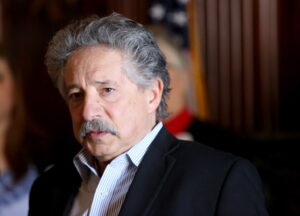
Clearly, Soglin thinks he’s the right man for the right time. But given his record, it is unclear whether that time is 2018 or 1918.

What’s scary about all this blustering about nuclear war between North Korea and the United States is that it is accepted so cavalierly — like, ho-hum, lobbing nukes at each other across the Pacific is just another day at the office.
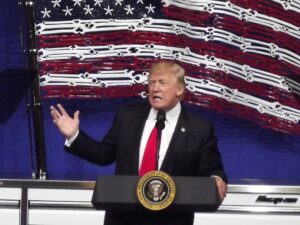
Trump administration has waged a ceaseless war on our outdoors, eviscerating our system of environmental protection, severely weakening safeguards for our air, land and water and undercutting efforts to address the climate crisis.

Pocan, Moore, Sensenbrenner, Duffy voted NO on FISA bill.

Glitzy, WI-paid Foxconn-related transit ads on Illinois transit, hundreds of millions of WI transportation dollars for Foxconn-related roads, but in Milwaukee County, buses to industrial parks and other routes have been slashed for lack of funds that wouldn’t even show up in the $4 billion ticketed for Foxconn.

Efficiency office created in 2010 reports to board members. But is it needed?

After almost a decade of stunted growth, depressed wages, and general pessimism, America’s economic confidence is growing. And soon worker’s paychecks will be, too.

And that’s a mark of how endangered voting rights are right now.

His call to fire elections commission leader defies the law and common sense.

This weekend on Capital City Sunday Wisconsin Senator Ron Johnson was allowed to make it appear that everyone hates the Affordable Care Act. The fact is that the law is now more popular than ever.

In “Two Minutes with Mitch” radio personality Mitch Henck gives his two cents on Gov. Scott Walker’s criticism of Madison Mayor and gubernatorial candidate Paul Soglin and the city of Madison.

Walker says he’s taking Wisconsin in the right direction, but if that leads to state waters, don’t smell, drink or fish it, his own data show.
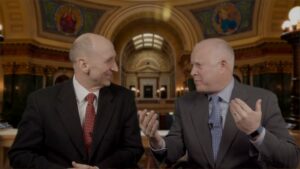
Show 39B Insiders Two-Minute Take (1-12-2018) from WisOpinion on Vimeo. The WisOpinion Insiders, Jensen & Chvala, analyze whether the latest Dem governor candidate, Paul Soglin, can become the Bernie Sanders of Wisconsin. Sponsored by Michael Best Strategies and the Wisconsin
Gov. Scott Walker recently announced a plan to close Lincoln Hills and Copper Lake and move offenders from the Northern Wisconsin youth prisons to new regional facilities.

Nationally respected pollster Paul Maslin says Democrats could do well in 2018 if they credibly offer an alternative to the status quo.

The next Democratic nominee for governor of Wisconsin should be the candidate who best expresses what the author Michael Harrington used to describe as “the left wing of the possible” — a progressive who can win. It is entirely true that the candidate who best strikes this balance could be over 70 or under 40. But it is also true that the Democratic Party needs an infusion of young blood among the ranks of its candidates.

The state of Florida has 20.6 million residents. Wisconsin has 5.8 million. Both states are about the same number of square miles. Florida has 67 school districts. Wisconsin has 425.

It’s bad enough that Wisconsin Republicans have gone out of their way to make it harder for many Wisconsin citizens to exercise their civic duty to vote with an onerous voter ID law — now state government is making it even harder to get those IDs in the first place.

As a longtime conservative strategist and consultant, I had a front row seat to what the Wisconsin Supreme Court called, “a perfect storm of wrongs,” visited upon people who are “wholly innocent of any wrongdoing.”

Past economic data suggests it won’t. And voters think it will fail.